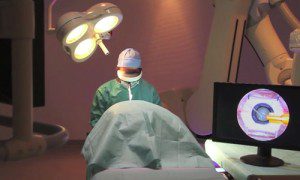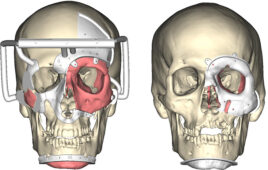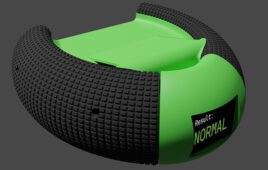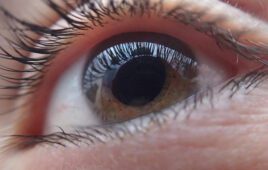
By 2030, there is anticipated need for 30,000 additional MSICS surgeons in order to treat all cases of cataract blindness in the third world.
Moog Industrial Group, a division of Moog Inc., and its partner HelpMeSee, a global campaign to end cataract blindness, provided multiple demonstrations of a first-of-its-kind cataract surgery simulator in Beijing for representatives from the Chinese Ministry of Science & Technology, the Bill & Melinda Gates Foundation and the International Agency for the Prevention of Blindness (IAPB) as part of the Grand Challenges annual meeting. Grand Challenges is a group of initiatives led by The Bill and Melinda Gates Foundation, The United States Agency for International Development (USAID) and Grand Challenges Canada to promote the use of technology to help the world’s poor and solve pressing global health issues. Cataracts are the leading cause of blindness worldwide, despite the fact that a treatment exists. The HelpMeSee Eye Surgery Simulator is part of a global initiative to train the specialists needed to provide this essential surgical care.
After representatives from HelpMeSee and Moog demonstrated how cataract specialists can use the state-of-the-art prototype simulator and courseware to train for Manual Small Incision Cataract Surgery (MSICS), attendees had an opportunity to try the system. The MSICS simulator provides trainees with a realistic environment to practice and achieve proficiency in any number of scenarios and will ultimately include more than 249 training tasks and complications that cataract specialists could face during live surgery. Using advanced physics-based virtual tissue models, the simulator produces high fidelity haptic feedback for surgeons and trainees using the system. This level of sensitivity is essential to allow the MSICS trainee to develop the correct psychomotor skills for performing surgery safely. Use of a simulation system also removes the risks and costs associated with practicing on live patients and ensures that trainees begin live surgeries at a level of maximum proficiency.
HelpMeSee selected Moog based on the manufacturer’s haptic technology and high-performance motion control expertise, as well as the historic relationship between Moog and FlightSafety International to produce Level D flight simulators for aviation training. Moog created the virtual environment in which the cataract specialists will develop mastery of MSICS and worked with its partners, SenseGraphics and InSimo, to develop the advanced graphics and physics-based models behind the system.
The locations and dates for the demonstrations of the simulator were:
- The International Agency for the Prevention of Blindness (IAPB) – October 14, 2015
Beijing Marriott Hotel City Wall
7 Jian Guo Men South Ave., Dongcheng District, Beijing, 100005, China
- HelpMeSee Eye Surgery Simulator Demonstration – October 15, 2015
The Westin Beijing Chaoyang Hotel
7 North Dongsanhuan Road, Chaoyang District, Beijing, 100027, China
- The Bill & Melinda Gates Foundation’s Grand Challenges Annual Meeting – October 20, 2015
Kerry Hotel Beijing
No 1 Guanghua Rd., Beijing, 100020, China
After the demonstrations in Beijing, HelpMeSee and Moog expect to have the final version of the Eye Surgery Simulator ready to deploy worldwide in 2016.
HelpMeSee
www.HelpMeSee.org




